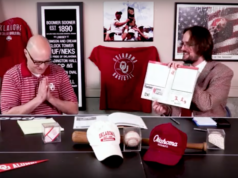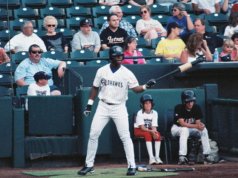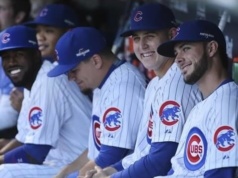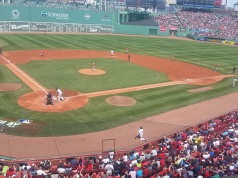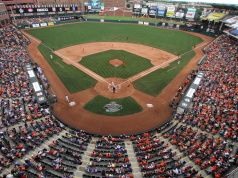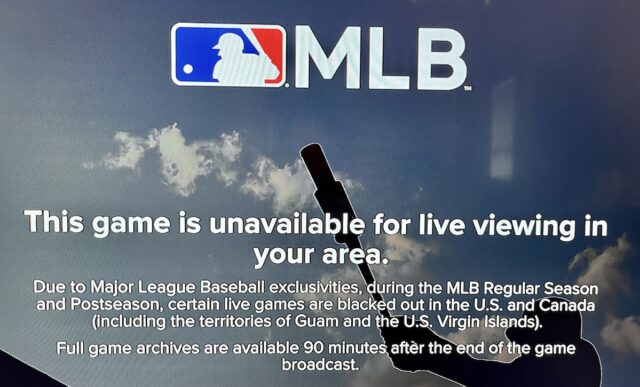
I’m a child of Ted Turner’s SuperStation WTBS.
Early evenings in the 1980s were spent at my grandfather’s house, watching the Atlanta Braves game du jour. The Braves’ 13-game win streak to open the 1982 season? It’s when my grandpa taught me about baseball, as we watched every inning of those games to initiate my love for the sport.
The “One Crazy Summer” promos for the disastrous 1987 season that saw Atlanta lose 92 games? I was watching. The 106-loss 1988 season? Scarred right into my memory as I lived and died (mostly died) through nearly every game on Channel 4 in Hartshorne, Oklahoma.
The miracle worst-to-first 1991 season? I watched almost every game, until the moment Jack Morris threw his final pitch against my Braves in the World Series. The summer of ’96 when I moved to Fort Smith, Arkansas, for a newspaper internship? Skip Caray and Pete Van Wieren were my best friends that summer, always welcoming me home to my destitute little apartment after work.
So imagine my consternation this baseball season when, during the opening month of April, my attempts to watch my beloved Braves were met by an unwelcome sight: the dreaded “this game is unavailable for live viewing in your area” MLB blackout notification. I experienced this not once, mind you. Not just for a three-game series, either.
The MLB blackout problem disrupted my plans nine times in the first 21 games.
That’s nine times I wanted to watch my Braves and was faced with a frustrating message on the MLB app. That’s nine times Major League Baseball wanted me to get up and either drive five-plus hours to St. Louis or Houston or Kansas City to watch a baseball game in person, or to re-enlist with AT&T or Cox or some other cable company that might not even carry every game anyway.
I know I’m not alone in facing this frustrating experience, and that’s why I’m writing this column: It is beyond time to address the MLB blackout problem.
The MLB blackout problem is even worse in Iowa
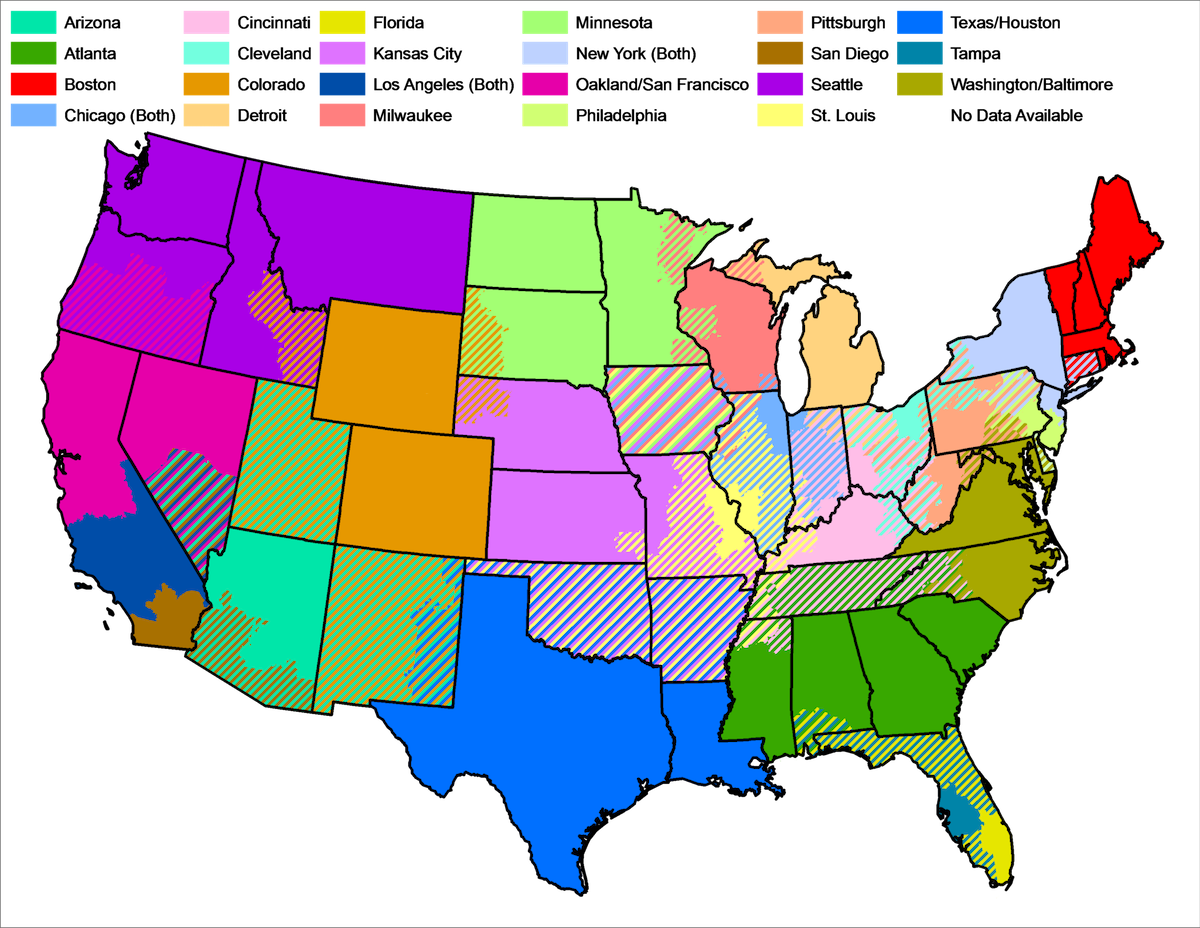
When it comes to dealing with the MLB blackout problem, I guess I should count myself lucky.
In Oklahoma, we only have four teams (four!) regularly blacked out. We’re lucky as Okies because, it has come to my attention, the state of Iowa can now be known for something other than corn, mediocre quarterback play and surprisingly good beer: A whopping six Major League Baseball teams are blacked out for Iowa viewers!
I guess the people who run the MLB must hate baseball? That’s sarcasm, but what else are we supposed to conclude?
To understand the nuts and bolts of the issue, Major League Baseball blackout rules can be boiled down thusly: Games will not be streamed through the MLB.tv package in participating teams’ “home territory.” In other words, if you live in Dallas, you won’t be streaming Texas Rangers games any time soon. Same for those who live in Houston for Astros games, Kansas City for Royals games or St. Louis for Cardinals games.
But the problem is that “home territories” span hundreds of miles and cross state lines. In Oklahoma and Arkansas, MLB package subscribers can view none of those four teams’ games, no matter where or whom they are playing. ESPN’s Sunday Night Baseball game is also unavailable on the MLB package, as is the new Sunday morning game on Peacock’s paid service.
Blackout rules are silly vestiges of decades past, insomuch as they were ever intended to help in-person attendance. As far as meeting cable providers’ desires for exclusive broadcasting rights in local markets, I guess it makes more sense — as long as those broadcasts are easily available in the blackout area. Sure, the Cardinals and Rangers have historic broadcasting ties to Oklahoma. But using my hometown of Hartshorne as an example, it’s rare to find a Royals game on TV.
Why MLB has considered Oklahoma a “home territory” for all four of those teams is asinine. Maybe the Texas Rangers qualify. I’ll give them that — begrudgingly — but the other three are far more than a day trip from this state unless you’re powered by jet fuel.
I’m positive the folks in Iowa are similarly confused how they’re considered “home territory” for the Minnesota Twins, Milwaukee Brewers, Chicago Cubs, Chicago White Sox, St. Louis Cardinals and Kansas City Royals. Local politicians there are certainly unamused.
Don’t stream on my leg and tell me it’s raining
The MLB’s blackout policy looks even more foolish as Americans gravitate to the growing list of streaming services that rarely carry local channels. That makes getting coverage of “local” teams difficult at best and impossible at worst.
Luckily, the league offers MLB.tv, where every game can be streamed for a monthly or yearly price, right? Well, again, not if you’re a Houston Astros fan living 718 miles away in Boise City, Oklahoma. You’re considered as living in their “home territory.”
If you’re an Atlanta Braves fan who was born and bred on 162 televised games courtesy of WTBS, you’re similarly out of luck when they play any of those capriciously chosen “home teams.”
And that brings us back to why I sat dumbfounded nine times last month, slowly realizing the Venn diagram for a dumbass and an MLB executive is a single, solid black hole. For decades, baseball has bemoaned its lost standing in the American consciousness, first ceding its catbird seat to football, and now finding itself assaulted by basketball. Yet, the response from the suits in MLB offices is to make the sport less accessible and harder to consume.
While the on-the-field product is better than ever — those who reign over the actual gameplay have done fans a great service with the advent of the pitch clock and the elimination of the infield shift — fewer people seem to be able to watch it because of the draconian blackout rules.
So, sit back, pop a cold one, and get ready to watch a still screen if your favorite hardball team is playing anywhere in the incredibly general vicinity of where you’re located. That’s “general,” as measured in cosmic Star Trek distances.
For an old Superstation WTBS kid like myself, the MLB blackout problem hits worse than reruns of The Andy Griffith Show when the Braves are rained out.











